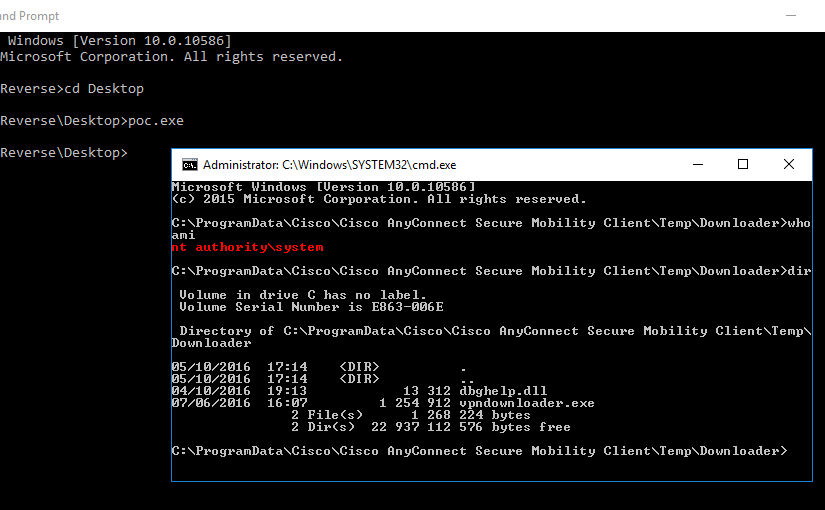Apr 07, 2021 Cisco AnyConnect: auto login in silent mode. This gist is for Linux. For windows is the same thing. Create a file.logininfo as below. Connect your.server.url usernanme password (blank line).
If you wish to install it via the command-line, you can do so with: sudo apt-get install network-manager-openconnect-gnome. This adds an option to Network Connections. When you choose to add a connection, there'll be a new option under VPN Connections to add a 'Cisco. Cisco AnyConnect Linux 64 via command line. Document Description: Download and installation of standalone tarball package for an Ubuntu 18.04 system via command line. Download this TXT file.
Cisco AnyConnect: auto login in silent mode
This gist is for Linux. For windows is the same thing.
Connect
create a file .login_info as below:
create a script as below

Trouble shooting
The input (content of .login_info) may vary according to your settings. Try VPN shell to determine your inputs.
Run/opt/cisco/anyconnect/bin/vpn -s
Now you are in command shell:VPN>

Connect your server:VPN> connect your.vpn.server
Input what asked, for me it's below:Username: [xxxxx] xxxxxPassword: xxxxxx
Exit from VPN shell:VPN> exit (or return)
Remember what you typed, and save them into the .login_info file.
Disconnect
With this approach, the icon will not show in the taskbar, you need run command line vpn disconnect to disconnect.
If you want to show the icon in the taskbar, add below line in the script:
| This article refers to the Cisco AnyConnect VPN. If you're looking for information on the Prisma Access VPN Beta that uses the GobalConnect app, see: Prisma Access VPN Landing Page. If you're not sure which service you're using, see: How do I know if I'm using the Cisco AnyConnect VPN or the Prisma Access VPN? |
Answer
| Use Official Cisco Clients IS&T strongly recommends that you use the Cisco clients to connect to the VPN. They have been tested and should work on all supported operating systems. By visiting http://ist.mit.edu/cisco-anyconnect/all in your web browser, you can download and connect using the official Cisco AnyConnect Secure Mobility Client. |
System Requirements
- openconnect is only available in Ubuntu 9.10 (Karmic) and higher. We strongly urge you to use Ubuntu 10.04 (Lucid), as it contains the newest version of the openconnect client, which fixes a number of bugs from previous versions.
Network Manager
On current versions of Ubuntu Lucid, you must reboot the workstation after installing the network-manager-openconnect package. This is due to a bug in the package's configuration scripts. Failure to reboot will result in the misleading error 'No VPN secrets' when attempting to connect to the VPN, and the login dialog box will not be displayed.
- Be sure you have installed the network-manager-openconnect package and its dependencies.
- From the System menu, select Preferences, then Network Connections.
- Click on the VPN tab, and then click the Add button.
- When prompted to choose a VPN Connection Type, select Cisco AnyConnect Compatible VPN, and click Create...
- Assign the connection a useful Connection name such as MIT VPN
- For Gateway, enter vpn.mit.edu
- For User name, enter your MIT username (e.g. joeuser)
- All other settings should be left at their default values. Click Apply.
- Click on the NetworkManager icon in the notification area, select VPN Connections, and then select the VPN connection you just configured.
- After a moment, you should be prompted for your username and password (twice); the second password field expects a Duo code (if you are Duo-enabled), and the connection will be established.

Cisco Anyconnect Linux Command Line And Shell Scripting Bible 3rd Edition Pdf
To disconnect from the VPN, select the NetworkManager icon in the notification area, select VPN Connections, and then select Disconnect VPN...
Command-line
- Be sure you have installed the openconnect and vpnc packages.
- Become root.
- Run openconnect -s /etc/vpnc/vpnc-script vpn.mit.edu
You will be prompted for your MIT username and password, and then the VPN client will connect.
Once connected, you will have an IP address that begins with 18.100 or 18.101
To disconnect, simply press Ctrl-C to end the openconnect program.
11.10 (oneiric ocelot) 64-bit Notes
We have tried this in 11.10 64-bit and it does work:
Install openconnect with the command sudo apt-get install network-manager-openconnect. From dash, run Network Connections. Create the vpn connection as described in the section above.
If this works, you get an extra tab in the Network Connections app that says 'vpn'. Then add and use the settings vpn.mit.edu and accept / save the certificate when you try to connect.
Note that the 32-bit installer (vpnsetup.sh) seems to work fine on 32-bit 11.10 - so use that as the first resort.
Ubuntu notes
Before extracting the tar.gz, you'll need to install two libraries:
Cisco Anyconnect Linux Command Line Cheat Sheet
sudo apt update && sudo apt install lib32z1 lib32ncurses5
Cisco Anyconnect For Linux Download
After that, you should be able to extract and run the installer script.

